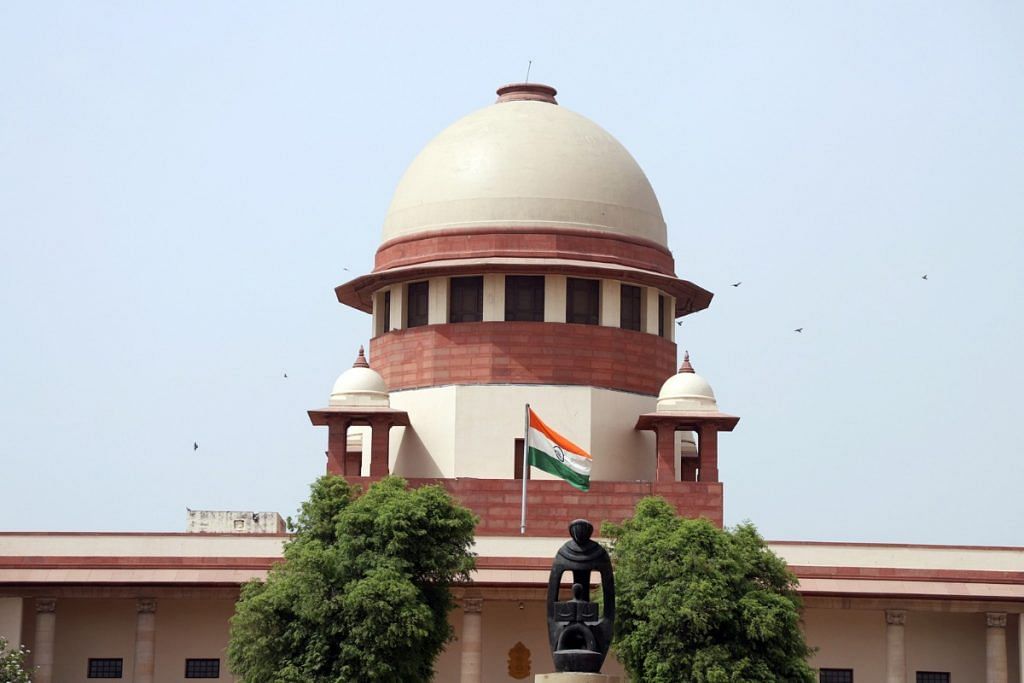New Delhi: Chief Justice of India (CJI) D.Y. Chandrachud Monday once again advocated an end to the practice of documents being submitted in “sealed covers”, saying, “There cannot be secrecy in the court. The court has to be transparent.”
The Supreme Court bench comprising the CJI, Justice P.S. Narasimha and Justice J.B. Pardiwala was hearing the case concerning the arrears under the One Rank-One Pension (OROP) scheme.
On the central government’s submission of a sealed cover note regarding its views on the scheme, the bench refused to accept it, saying, “We need to put an end to this sealed cover practice in the Supreme Court…This is fundamentally contrary to the basic process of fair justice.”
Sealed covers are a practice followed by Indian courts of accepting confidential information from government agencies which are only accessible to the judges. They are often used when information either concerns an ongoing investigation or is personal in nature. It is often used in services/administrative cases and sexual assault cases.
In October last year, media reports quoted a bench of Justice Chandrachud and Justice Hima Kohli as saying that a sealed cover report “sets a dangerous precedent” as it makes the adjudication process “vague and opaque”.
This is not the first time that the Supreme Court has expressed its displeasure with the sealed cover practice. At the same time, a series of orders from across the country show that courts continue to accept information in such sealed covers on a case-to-case basis.
Also read: Woman moves SC to postpone news broadcast on Air India urination case
Peril of sealed covers
In the Rafale aircraft deal case, the SC had accepted the central government’s sealed cover report on the grounds that it pertained to the Official Secrets Act.
According to media reports, the SC misinterpreted the statement made by the government as to the pricing details. Post the verdict, in an interview to The Wire, noted economist Arun Shourie said the verdict had exposed the ‘peril’ of sealed covers as evidence submitted in open court would be open to public scrutiny.
In 2018, in the National Register of Citizens (NRC) exercise in Assam, the SC requested its coordinator Prateek Haleja to submit his report in a sealed cover – which neither the Government, nor the affected parties had access to.
The SC also accepted sealed covers in the Bhima Koregaon case where it relied on evidence submitted by the Maharashtra Police in such format.
Even in the case involving CBI Director Alok Verma, the court directed the CVC (Central Vigilance Commissioner) to submit his report in a sealed cover. Verma could thereafter file his response to the cover, and the court can take a decision, it had said.
Not the first time
The bench of Justice Chandrachud and Justice Hima Kohli had said last year that the sealed cover practice denies the aggrieved party the right to effectively challenge an order since it does not have access to the “unshared” information. It also “perpetuates a culture of opaqueness and secrecy”, the bench had said, adding that it affects the balance of power.
In a similar vein, Chandrachud had held in the case involving the central government’s ban on Malayalam TV channel MediaOne that the court was averse to “sealed cover” jurisprudence. Interestingly, then CJI N.V. Ramana had echoed Justice Chandrachud’s concerns in a case involving the Bihar government last year. “Please don’t give us a sealed cover, we don’t want it here,” Justice Ramana had said, according to media reports.
Even in the order granting bail to former finance minister P. Chidambaram, the SC had “censured” the Delhi HC for accepting sealed cover reports submitted by the ED.
The court had called the practice an affront to fair trial, while accepting that the it may “peruse” the information, it cannot base its decision on the same.
(Edited by Smriti Sinha)
Also read: Digitising over 3,000 cr records, pushing online hearings — Modi govt’s plan for eCourts Phase III
